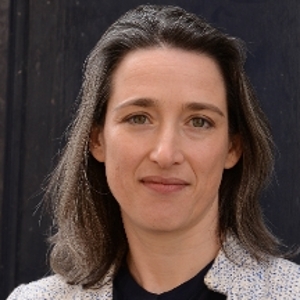Maartje van Gelder is associate professor in early modern history. She is interested in how early modern people and rulers navigated political and social conflict, change, and environmental disasters. She has worked on migration and commerce in Italy, the interplay between famines and international trade, and Christian-Islamic diplomacy in the early modern Mediterranean. She has previously held visiting fellowships and appointments at Birkbeck, University of London, Columbia University, the Italian Academy of Advanced Studies in America, NIAS, and the Institute of Advanced Study in Princeton. She is the co-founder and former director of UvA’s Centre for Urban History (ACUH). Her most recent publication is the article ‘Papering Over Protest: Contentious Politics and Archival Suppression in Early Modern Venice’, Past & Present, co-authored with Filippo de Vivo (Oxford).
At KNIR, she is working on her book, provisionally entitled Uncovering Protest in Venice. Contestation and Archival Politics in the Early Modern Period. Drawing on memory studies, the social history of archives, and subaltern studies, it examines how Venetian authorities suppressed popular protest not just in the street but also – or especially – in the archive. Overviews of political history always present Venice, Europe’s foremost city-state, as stable, without popular protest but this reputation rests on large-scale archival suppression. This book aims to uncover Venetian archival repression and understand its lasting effects on history-writing. As part of her visiting professorship at the KNIR, she will teach the course Archival Politics: Culture, Power, and Suppression, together with Richard Calis.
During her time in Rome, Maartje is also working on a project that examines urban food protests during the climate crisis of the late medieval and early modern period. The aim of the project is to compare the political impact of food protests in European and Ottoman cities. She will use her time at KNIR to develop this project in dialogue with other urban historians, archeologists and policy specialists working on food, famines, and cities.
